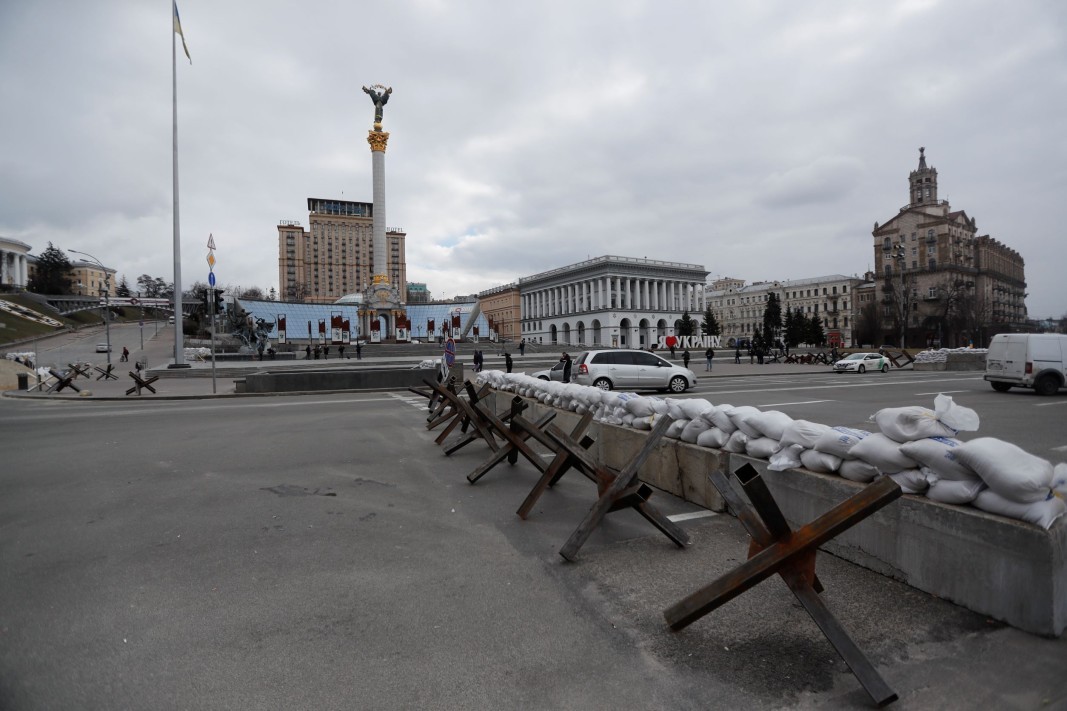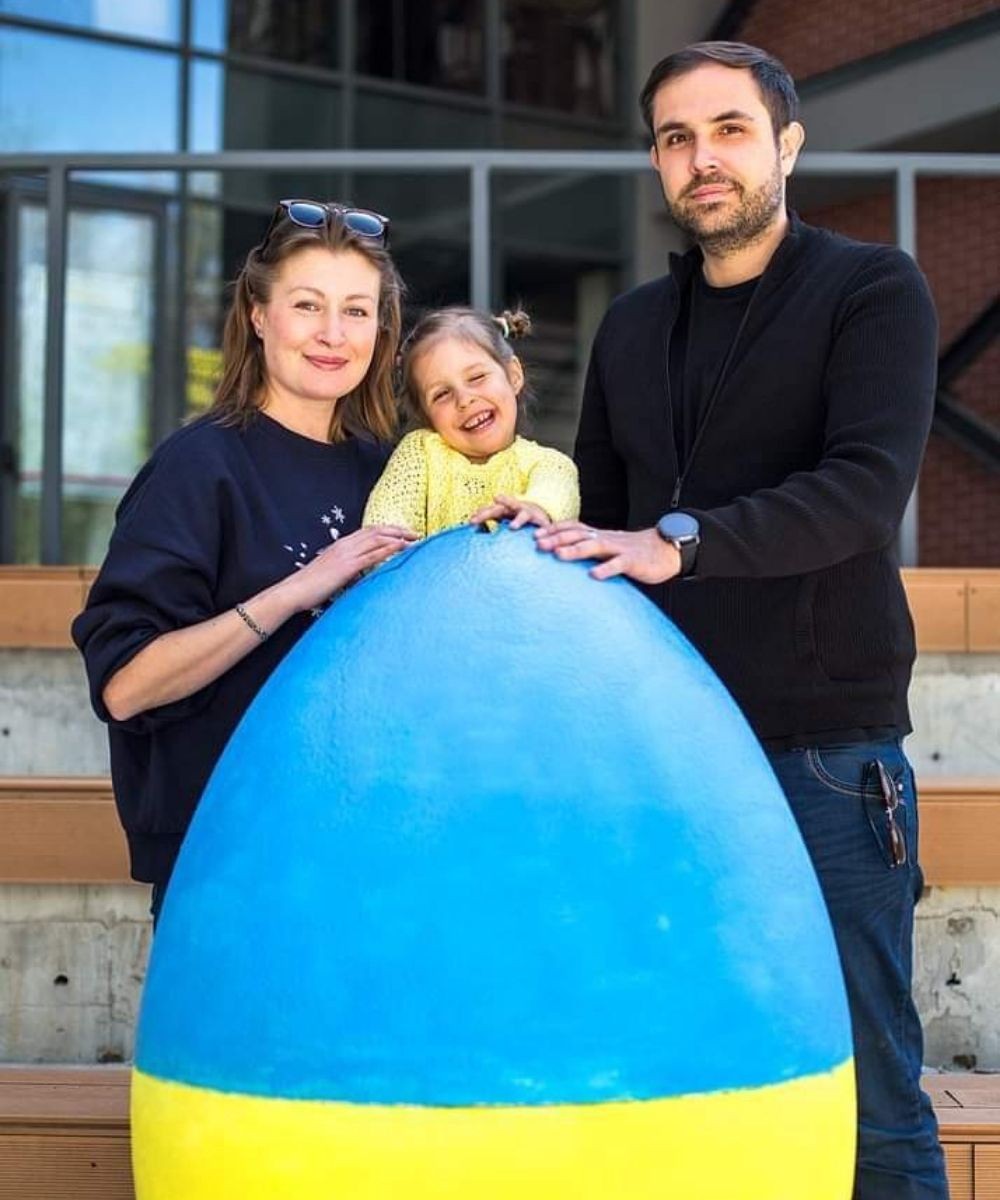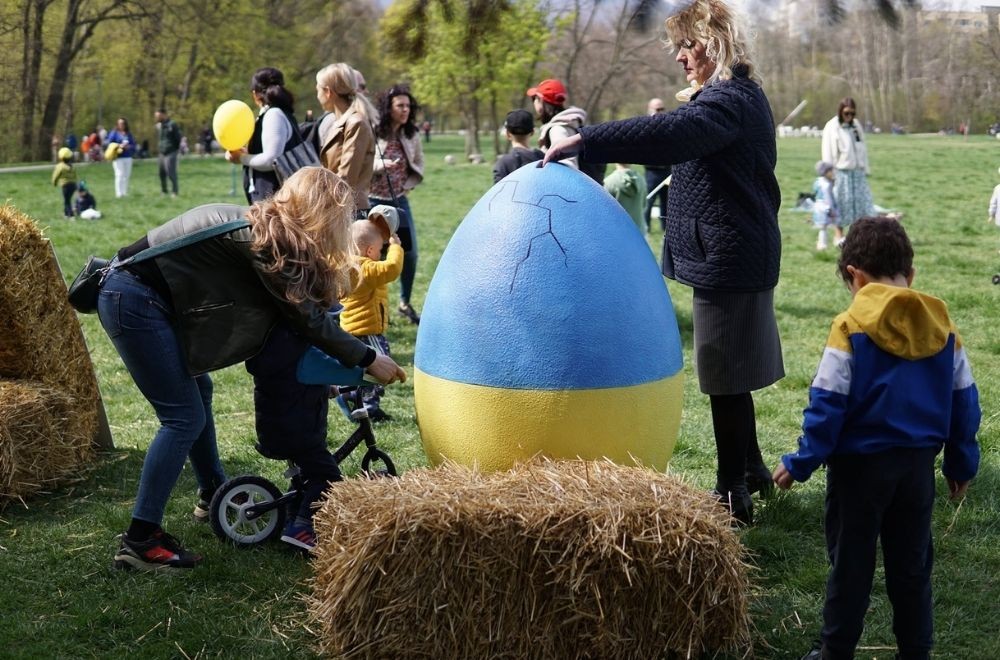It is the 63rd day of the war in Ukraine. According to the UN, more than 5 million Ukrainians have left their homeland since the start of hostilities, 94,300 of them are on the territory of Bulgaria, of which more than 84,000 already have the status of temporary protection (according to data by April 26) .
If you spend a few minutes today on a playground in Sofia, you will surely hear Ukrainian speech and see around you parents with small children who still keep the picture of the war in their eyes. But for them, the smile is a swing away. They are the saved ones. Today we will tell you about one of them who chose Bulgaria on the road to peace.
Vladislav Dimitrov is a 38-year-old Kyiv resident with a master's degree in political science and a doctorate in philosophy from Taras Shevchenko University in Kyiv, where he has been a part-time lecturer for 15 years. He owns an advertising agency with public relations services, but above all Vladislav is the son, husband and father of a beautiful four-year-old girl.
"I am a Bessarabian Bulgarian, my grandfather was born near Dobrich and these are my roots. I was born and raised in Kyiv, but Bulgaria has always been in my heart. Even before the war, I had a plan to move to Bulgaria with my family. We were planning to arrive in May this year, look for a job and make a living here. But as they say - if you want to make God laugh, tell him about your plans.
When it all started it was Thursday morning, we woke up at 4-5 o'clock in the morning from shots and explosions. My mother called and said, “The war has started! Go to the bomb shelter immediately and wait for instructions." We did it. The next day, when things escalated, I called the Bulgarian embassy and asked to evacuate. They assured me that we should wait calmly and that they would look for us. Until Sunday, no one called or picked up phones at the embassy. On Monday, at exactly 11 o'clock, I will never forget that moment, the phone rang and I was told that we had an hour and a half to go to the embassy. My wife and I immediately took two backpacks and our daughter and left the shelter on the street. There was no transport, nothing was working, the bus stops were empty, there were only security checkpoints that were difficult to cross on foot. A day earlier, a rocket smashed a 25-storey building 500 meters from where we were hiding. We had to get out very quickly. I stopped a civilian car and asked the driver, whom I saw for the first time in my life, if he could take us to the centre. He agreed, so we passed the security posts and got to the embassy, where they helped us get to Bulgaria. "

This is Vladislav's story. The road to salvation for him and his family included 52 hours on a bus with their four-year-old child. His parents and those of his wife remained in Kyiv, where they are also now. "We talk to them on the phone every day, but they don't want to leave the city," Dimitrov said, without a clear answer to the question "Why?" "I tried to call them to come to us, but they are adamant that they do not want to move. They say it's their home, their life, and they want to stay."
And while the world has a hard time understanding the war that began on February 24, we ask whether it was predictable for the people of Ukraine.
"As a citizen, as a person, I never believed it would happen! But as a specialist in political issues, I could guess, because things have escalated in the last eight years”, Vladislav Dimitrov explains. “The truth is that no one expected Russia to do what happened - to bomb civilians. You know, I remember 20 years ago my grandfather used to tell me, "Remember son, one day we will be at war with Russia." Then I replied very emphatically that this could not happen. Historically, however, the propaganda over the past 22 years could not have led to anything different," said the young Ukrainian.

His hopes are moderate that it will all be over soon. And until that happens, Vladislav is helping as much as he can. He is a volunteer and runs a social media channel in support of those fleeing the war in Ukraine, and his wife helps her compatriots who have arrived in Bulgaria. Only a week ago, a charity picnic event "Easter Together" was organized in Sofia’s South Park at Vladislav's idea. He is adamant that together with his wife they will do everything possible to be part of the Bulgarian society and to be useful for it.
He is extremely grateful for the support and attitude towards their little daughter, who has been attending a kindergarten in Sofia for a week now and is the easiest of the three to adapt. He admits that at this stage he has no choice but to see his future here and says: "Bulgaria is my home today."

"I never believed that the Bulgarians would help us and be empathetic in the way they did. This solidarity and unity is unexpected for me. I was thinking on the bus while I was in the middle of nowhere, what awaits us and where we are going, and now I see that the Bulgarians are like us and are really trying to help us as much as they can. I do not have enough words to express my gratitude to them. Thank you, Bulgarians! ”
English version Rositsa Petkova
Photos: private library, BGNES, sofia.bgAlexandra-Yoana Alexandrova, an actress, singer and model with impressive looks, musical talent and a vibrant stage presence, was in Sofia at the end of July and beginning of August, performing the role of Cosette in the popular musical Les Misérables..
Louisa Wanbal is employed at the German Federal Ministry for Economic Affairs and Energy . What connects this young German woman to Bulgaria is her love of the Bulgarian language. Although she studied French language and culture at university , she..
"I never had the desire to emigrate, but shortly after our wedding I accompanied my husband to Manchester, where he was sent for specialization," says architect Eva Popnedeleva , recalling the beginning of her extremely interesting life story...

+359 2 9336 661
